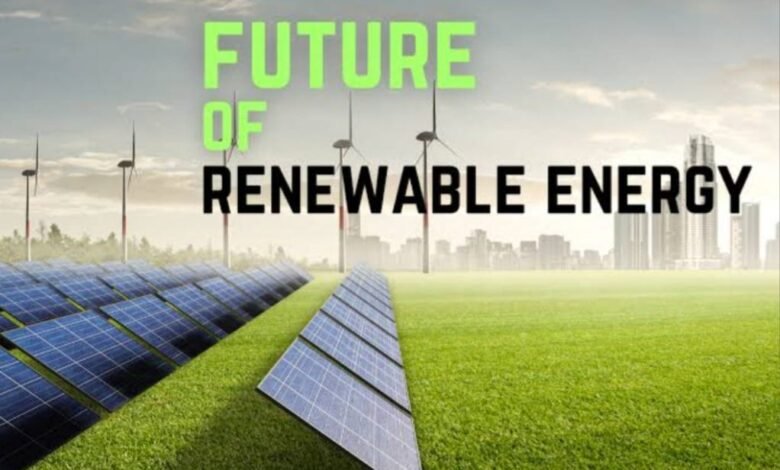Understanding Solar Panels: The Future of Renewable Energy

In recent years, solar panels have emerged as one of the most reliable and sustainable sources of energy. As the world grapples with the effects of climate change and seeks alternatives to fossil fuels, solar energy has gained immense popularity. Solar panels, which convert sunlight into electricity, are a key technology driving the shift toward renewable energy. This article explores the basics of solar panels, their advantages, and the latest trends shaping the future of solar power with the help of Solee.
What Are Solar Panels?
Solar panels are devices designed to capture sunlight and convert it into electrical energy. They consist of photovoltaic (PV) cells made from semiconducting materials, typically silicon. When sunlight hits the PV cells, it excites the electrons in the material, generating an electric current. This process is known as the photovoltaic effect.
There are different types of solar panels available in the market, with the most common being monocrystalline, polycrystalline, and thin-film panels. Each type offers unique advantages depending on factors such as efficiency, cost, and installation environment.
Advantages of Solar Panels
- Environmentally Friendly: Solar energy is one of the cleanest sources of energy available today. Unlike fossil fuels, it does not produce harmful emissions that contribute to air pollution or climate change. By harnessing the power of the sun, solar panels help reduce carbon footprints and protect the environment.
- Cost Savings: While the initial cost of installing solar panels can be significant, they offer long-term savings. Solar panels reduce or eliminate electricity bills by generating free energy from the sun. Additionally, many governments offer incentives and subsidies to encourage the adoption of solar energy, making it a financially viable option for homeowners and businesses alike.
- Energy Independence: Solar energy allows individuals and businesses to generate their own electricity, reducing reliance on the grid. This is particularly important in areas with unstable electricity supplies or high energy costs. Solar panels can provide a consistent and reliable source of power, especially when combined with energy storage solutions such as batteries.
- Low Maintenance: Once installed, solar panels require minimal maintenance. Regular cleaning to remove dirt and debris is usually sufficient to keep the panels functioning optimally. Additionally, most solar panels come with warranties that last for 20 to 25 years, providing long-term reliability.
- Increased Property Value: Homes and buildings equipped with solar panels tend to have higher property values. Potential buyers often view solar panels as an attractive feature because they offer the promise of reduced utility costs and a smaller carbon footprint.
Key Trends in Solar Technology
The solar industry is evolving rapidly, with innovations in technology and design improving the efficiency and affordability of solar panels. Some key trends to watch for in 2025 and beyond include:
- Perovskite Solar Cells: Perovskite solar cells are a new type of solar technology that promises higher efficiency and lower production costs than traditional silicon-based panels. These cells use a special class of materials that have shown the ability to absorb a broader spectrum of sunlight, improving energy conversion rates.
- Bifacial Solar Panels: Bifacial solar panels are designed to capture sunlight from both the front and back sides of the panel. This increases the amount of sunlight absorbed, boosting the overall energy output. Bifacial panels are particularly useful in areas where reflected sunlight, such as from snow or water, can be harnessed to generate additional power.
- Solar Roof Tiles: Instead of traditional rooftop solar panels, solar roof tiles are designed to blend seamlessly with the architecture of the building. These tiles serve both as roofing material and solar panels, offering a more aesthetically pleasing alternative to conventional solar installations.
- Flexible Solar Panels: Flexible solar panels are lightweight and can be applied to curved or irregular surfaces, making them ideal for a variety of applications, including vehicles, portable devices, and clothing. These panels are a step toward making solar power more versatile and accessible.
- Energy Storage Solutions: As solar energy production depends on sunlight, energy storage is essential for ensuring a constant power supply, even during cloudy days or at night. Battery storage systems, such as lithium-ion batteries, are becoming more affordable and efficient, allowing homeowners and businesses to store excess solar energy for later use.
The Role of Solpaneler in the Solar Industry
In recent years, the term solpaneler, which means solar panels in Swedish, has gained significant recognition as solar energy adoption continues to grow across Europe and beyond. In countries like Sweden, Denmark, and Germany, solpaneler are becoming increasingly popular as more individuals and businesses seek to reduce their reliance on traditional power sources and embrace cleaner alternatives. The European Union has been instrumental in promoting renewable energy initiatives, making solpaneler a key component of the region’s sustainable energy future.
The Growing Popularity of Solee Solar Solutions
Another emerging trend is the rise of Solee, a company known for its innovative solar products and solutions. Solee is redefining the solar industry by offering cutting-edge technology that not only improves the efficiency of solar panels but also makes them more affordable for consumers. With a focus on smart energy solutions, Solee is leading the way in creating solar panels that are more integrated into the smart grid, allowing for better energy management and storage.
Read Also: AI for Pest Control: The Smart Tech Solution Revolutionizing Modern Extermination
Conclusion
Solar panels are an integral part of the global transition to renewable energy. With continued advancements in technology, efficiency, and affordability, solar energy is becoming more accessible to people around the world. Partnering with an affordable electric company can further enhance these benefits by helping homeowners integrate solar energy solutions that reduce overall utility costs. As the demand for clean energy solutions grows, the solar industry will continue to innovate, and companies like Solee and the increasing use of solpaneler will play a pivotal role in shaping the future of solar power. Whether for homes, businesses, or even entire cities, solar panels are the cornerstone of a sustainable energy future.




